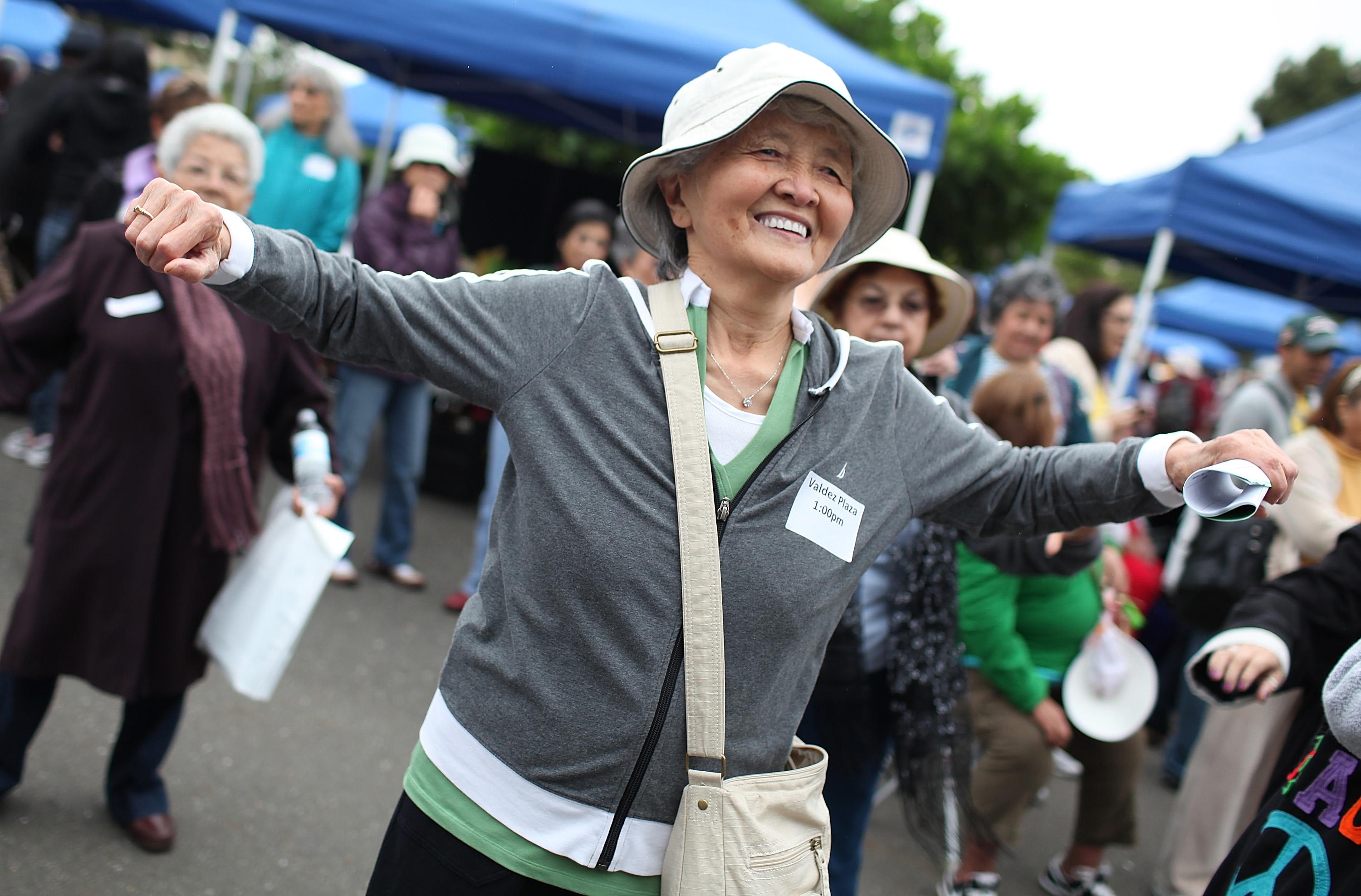If the news lately feels like a horror show of bombings, shootings, and the continuing failure of Congress to act like professionals, well, you haven’t seen true travesty yet. The New York Times this morning is here to show you, if you can stand it: Elderly people are playing ping-pong and eating lunch for free in senior centers. Insufficiently outraged? Did I mention that many of them are immigrants? Some of these moochers are currently in good health!
The piece, written by Nina Bernstein, does actually address a real problem facing New York’s health care funding system. The state created a program to offer disabled seniors coverage to go to adult day centers, on the theory that the socializing and services offered there could forestall the need for more expensive options like nursing homes. To make a long story short, the system put in place has allowed managed care companies that are financed by Medicaid to certify participant eligibility, and they’re seemingly quite generous with it. Now, apparently healthy seniors are spending time at these day centers, playing bingo and eating Chinese food, using money that’s earmarked for helping the disabled.
To be fair, it’s the managed care companies that are the real villains of Bernstein’s story. They get referrals from the day centers in return for their financial backing. Under their watch, the centers employ illegal recruiting strategies, enticing new clients with grocery vouchers, cash payments and unlimited metro cards. As Bernstein relates,
Advocates for the elderly have been complaining to city and state officials that pop-up social day care centers were siphoning healthy clients from regular senior centers, sometimes with illegal inducements, and referring them to managed care plans that eagerly enrolled them.
Such conduct, if true, is pretty unsavory. And yet it’s difficult to get too outraged over a trend with such a positive end result. Low income seniors now have a place to hang out, make new friends, and eat something nutritious while getting some exercise. Does this outcome really merit all the handwringing?
“Not a wheelchair or walker was in sight at these so-called social adult day care centers,” writes Bernstein, but there’s nothing “so-called” about these centers. Even if they aren’t operating by the standards the government intended, they are still social, still adult, and still offering care during the day for low income seniors who could use community support.
Furthermore, I’m disturbed by the sly nativist undercurrent in Bernstein’s rhetoric, the sense of indignation at immigrants getting a handout. Here’s how the piece opens:
Scores of elderly Russian immigrants played bingo under the chandeliers of a former funeral parlor in Brooklyn on a recent Monday, with a free dinner and door-to-door transportation from anywhere in the city.
Nearby, older people speaking Chinese filled a supermarket-size storefront with vigorous games of table tennis, billiards and mah-jongg, and ordered free lunch from a takeout menu featuring minced pork, beef and salty fish.
Why the focus on foreign countries, foreign languages and foreign foods? As it goes on, the article continues to paint clients as freeloading immigrants:
In Bensonhurst, Brooklyn, at the new R & G Social Adult Day Care Center, known locally among elderly immigrants for luring clients with cash and grocery vouchers, most people there for lunch did not stay to eat. Instead, many walked briskly toward the subway carrying bags stuffed with takeout containers, and two elderly men rode away on bicycles with the free food.
The solution to this problem seems simple to me: The government should directly fund these kinds of services for seniors through a special program, instead of going through Medicaid and managed care systems, where the overhead causes the centers to be more expensive than necessary. But in any case, there are plenty of options for reporting this story that don’t involve begrudging elderly people a game of bingo, or relying on stereotypes about lazy immigrants angling for a free lunch.
